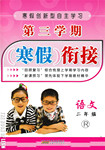题目内容
When Edward was 18,he bought a second-hand car for $200 so that he could travel to and from work more easily than by bus.It worked quite 1 for a year,but then it got so old and it was costing him 2 much in repairs that he decided he had better 3 it.
He asked among his friends to see if anyone was particularly 4 to buy a cheap car,but they all knew that it was falling to pieces,so 5 of them had any desire to buy it.
Edward's friend,Bruce,saw he was 6 when they met one evening,and said,“what's 7 ,Edward?” Edward told him and Bruce said, “Well,what about advertising it in the paper? You may 8 more for it than the cost of the advertisement!” Thinking that Bruce's 9 was sensible,he put an ad in an evening paper,which 10 ,“For sale:Small ear,uses very little petro.Bargain at $50.”
For two days after the ad first appeared,there was no 11 .But then on Saturday evening he had an enquiry(询问).A man rang up and said he would like to 12 him about the car.“All right,”Edward said,feeling happy.He asked the man whether ten o'clock the next morning would be 13 or not.“Fine,”the man said,“and I’ll 14 my wife.We intend to go for a ride in it to 15 it.”
The next morning,at a quarter to ten,Edward parked the car in the square outside his front door, 16 to wait there for the people who had 17 his advertisement.Even Edward had to 18 the car really looked like a wreck (残骸) .Then,soon after he. had got the car as clean 19 it could be,a police car stopped just behind him and a policeman got out.He looked at Edward’s car and then said,“Have you reported this 20 to us yet,sir?”
1. A.directly B.safely C.happily D.well
2. A.so B.such C.very D.too
3. A.keep B.repair C.sell D.throw
4.A.anxious B.lucky C.fortunate D.generous
5.A.some B.all C.none D.most
6. A.delighted B.sad C.calm D.surprised
7.A.on B.up C.in D.around
8.A.learn B.miss C.get D. find
9.A. message B.advice C.request D.description
10. A. read B.translated C.wrote D. appeared
11.A.doubt B.help C. point D.answer
12. A.tell B.see C.agree D. call
13.A.exact B.suitable C.early D.late
14.A.follow B.meet C. bring D.introduce
15.A.recognize B.get C.admire D.test
16.A. happening B.meaning C.turning D.failing
17.A.received B.watched C.answered D.placed
18.A.forget B.show C.disagree D.admit
19.A.as B.like C.than D.such
20.A.reason B.sale C.accident D.result
1—5 DACAC 6—10 BBCBA 11—15 DBBCD 16—20 BCDAC

 寒假创新型自主学习第三学期寒假衔接系列答案
寒假创新型自主学习第三学期寒假衔接系列答案
| |||||||||||||||||||||||||||||||||||||||||||||
Edward Sims was born in 1892. He was the fifth child and only son of Herbert and Dora Sims. Herbert was a blacksmith(铁匠), and had a thriving trade making horseshoes. He was determined that his first-born son would follow him into the blacksmith. For this reason, Edward had to leave school at the age of 12,and worked with his father.
However, Edward was not cut out to be a blacksmith. Although he has an athletic body, he didn't have strong arms like his father, and he felt dizzy in the heat of the smithy. When he tried to find alternative employment, he found it difficult because he had never learnt to read or write.
One day, he went for an interview at a solictior’s office. The job was a runner, taking documents from the office to other offices in the city. The solicitor was pleased to see that Edward was physically fit, but when he discovered that the young man couldn't read or write, he decided against employing him. "How can you deliver documents to other offices," he asked, "if you can't read the addresses on them?"
Bitterly disappointed, Edward left the building and went to wait for a tram to take him back to the suburb where his father’s smithy was. Next to the bus stop, a man was selling newspapers from a stand .
"Excuse me, son?" he said. "Would you look after my stand for a moment?"
For the next 20 minutes, Edward sold newspapers, lots of them. When the man came back, he was so delighted with his new assistant's honesty, that he offered him a job. Edward took it immediately.
In the next few months, the two men progressed from working on newspaper stands to selling newspapers, tobacco,confectionery(糖果点心)and other goods in a shop. Then they opened a second shop, and a third. Eventually, they had a chain of 25 shops in three cities.
Edward became very rich, so he employed a tutor to teach him to read and write. The tutor was amazed at what Edward had achieved. "Imagine what you could do if you’d been able to read and write when you were younger!" he said.
“Yes!” said Edward. “I could have run myself to exhaustion delivering documents for a solicitor!”
【小题1】What would be the best title for the text?
| A.Success of illiterate newsboy |
| B.Local blacksmith becomes famous |
| C.The thriving trade of the blacksmith |
| D.Reading and writing-the road to success |
| A.Edward Sims did not like being a blacksmith. |
| B.Edward Sims did not like working with his father. |
| C.Edward Sims was not strong enough and it made him feel ill. |
| D.Edward Sims was good at it but wanted to do another job. |
| A.the solicitor turned him down because he wasn’t intelligent enough |
| B.the solicitor offered him the job because he was so fit |
| C.the solicitor gave him the job but told him he had to learn to read |
| D.the solicitor didn’t offer him the job because he couldn’t read |
| A.He was such a good salesman that he went on to own 25 newsagent shops with another man. |
| B.The newspaperman liked him so much he gave him a job. |
| C.He ran himself into exhaustion delivering papers. |
| D.He learnt to read and write. |